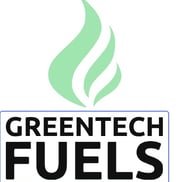GreenTech Fuels Applications
GreenTech Fuels focuses on the conversion of waste materials into valuable energy resources, using advanced technologies like gasification to process various feedstocks. These applications span a wide range of industries and sectors, contributing to environmental sustainability and energy efficiency. Below are the key applications of GreenTech Fuels:
1. Power Generation:
Electricity Production from Waste: GreenTech Fuels converts waste materials such as biomass, municipal solid waste (MSW), agricultural residues, and other carbon-rich materials into syngas through the process of gasification. This syngas can then be used in gas turbines, internal combustion engines, or fuel cells to generate electricity.
Distributed Power Generation: The technology allows for decentralized power production, providing electricity to off-grid areas or industries where the conventional power grid is unavailable or unreliable.
Renewable Energy Source: This approach contributes to the generation of renewable energy from waste, reducing reliance on fossil fuels and promoting sustainability.
2. Industrial Heating:
Process Heat for Industries: The syngas produced from gasification can be used to provide process heat for industries such as cement, glass, chemical, and food processing. It serves as an alternative to traditional fossil fuels, contributing to a reduction in industrial carbon footprints.
Waste-to-Heat Systems: Industries can utilize waste as a feedstock for gasification, turning it into a useful energy resource to meet their heating requirements, ensuring that valuable waste materials are not landfilled but instead used productively.
3. Biofuel Production:
Synthetic Liquid Fuels (Biofuels): Syngas produced by gasification can be further processed into liquid biofuels, such as methanol, ethanol, or synthetic diesel. These biofuels can be used in various applications, including transportation and energy generation.
Sustainable Transportation Fuel: The production of biofuels contributes to the development of sustainable alternatives to conventional gasoline and diesel, reducing greenhouse gas emissions from the transport sector.
4. Hydrogen Production:
Hydrogen for Industrial Use: Gasification can produce syngas, which can be further refined to separate hydrogen. Hydrogen is a key element in industries such as refining, ammonia production, food processing, and metal production.
Fuel Cells: Hydrogen is also a clean fuel for fuel cells, which are used in electric vehicles (EVs) and backup power systems. The process of hydrogen production through gasification is particularly valuable for enhancing the adoption of green hydrogen, a clean energy source for multiple applications.
5. Waste-to-Energy (WTE) Applications:
Municipal Solid Waste (MSW) Management: GreenTech Fuels uses gasification to convert municipal waste into valuable energy, providing a sustainable way to handle waste. This approach reduces the environmental impact of landfills and incineration, offering a cleaner, more efficient alternative.
Waste Recycling: The process helps in reducing landfill use by transforming various waste materials (organic waste, plastics, tires, etc.) into clean energy. This also prevents harmful emissions from conventional waste disposal methods.
Circular Economy: Gasification supports the circular economy by turning waste into energy, reducing waste disposal issues, and contributing to a more sustainable waste management system.
6. Agricultural Waste Utilization:
Biomass Energy Production: Agricultural residues, such as straw, husks, and stalks, are often left unused or burned, causing pollution. GreenTech Fuels can convert these agricultural byproducts into syngas, providing clean energy while reducing air pollution from open burning.
Waste Reduction in Agriculture: This helps reduce waste on farms and offers farmers an additional revenue stream by converting agricultural waste into energy.
7. Environmental Impact Reduction:
Reduction of Carbon Footprint: By using waste to generate energy, GreenTech Fuels helps lower carbon emissions that would otherwise result from the combustion of fossil fuels. The process of gasification is considered carbon-neutral when using biomass, as the carbon dioxide released during the process is offset by the carbon absorbed by plants during growth.
Cleaner Technology for Waste Disposal: Gasification produces far fewer emissions compared to traditional waste disposal methods like incineration or landfilling. This contributes to cleaner air and water, enhancing local environmental quality.
Waste-to-Value Approach: Gasification offers a solution to waste disposal and energy production simultaneously, promoting a sustainable waste-to-value model.
8. Community Energy Projects:
Local Power Solutions: GreenTech Fuels can provide community-scale energy solutions, especially in rural or underdeveloped regions. By converting local waste into energy, small communities can become energy-independent and self-sustaining.
Off-Grid Applications: For remote areas without access to a centralized electricity grid, waste-to-energy systems provide a viable and sustainable solution for electricity generation.
9. Carbon Capture and Utilization (CCU):
Carbon Sequestration through Syngas: Syngas can be processed to separate carbon dioxide (CO₂) and other greenhouse gases. This CO₂ can either be stored underground (carbon sequestration) or utilized in the production of chemicals, fertilizers, and other industrial products, contributing to the reduction of atmospheric CO₂ levels.
10. Industrial and Commercial Energy Solutions:
Powering Large Industrial Operations: GreenTech Fuels provides a reliable, cost-effective, and clean source of energy for industries, reducing their dependence on grid power or expensive fossil fuels.
Energy Efficiency: The use of gasified syngas in industries enhances energy efficiency by providing a more consistent and cleaner energy source compared to traditional fuels.
Conclusion:
GreenTech Fuels offers a range of applications that support sustainable energy production, waste management, and environmental impact reduction. By converting waste and biomass into valuable energy, GreenTech Fuels provides solutions for power generation, biofuel production, hydrogen production, waste-to-energy, and industrial heating, while contributing to a greener planet and promoting the circular economy. These applications are key to driving a transition toward more sustainable and renewable energy systems across various sectors.
HOME
ABOUT US
PRODUCTS
PROJECTS
TECHNOLOGY
SOLUTIONS
MEDIA CENTRE
CONTACT US
© 2024. All rights reserved.
PRODUCTS
BIOWATT COMPACT BIOMASS GASIFICATION POWER GENERATION SYSTEM
BIOMASS GASIFICATION POWER PLANT
BIOMASS GASIFIER
BIOMASS CARBONIZER
BIOMASS GASIFIER FOR GREEN-CHEMICAL
BIOMASS GASIFICATION BOILER
BIOMASS CARBONIZATION POWER PLANT
BIOMASS CARBONIZATION BOILER
COAL GASIFICATION POWER PLANT
COAL GASIFIER
WASTE GASIFIER
WASTE GASIFICATION POWER PLANT
SYNGAS GENERATOR SET
PRODUCER GAS GENERATOR SET
BIOMASS GAS GENERATOR SET
COAL GAS GENERATOR SET
GAS PURIFICATION SYSTEM
DECORBONIZATION
GREENTECH SOLAR
NANO HYDROPOWER
GREENTECH BATTERIES
HUSKTECH
CONTACT US
GREENTECH FUELS
GREENTECH HABITAT CENTER
CHOUPARAN, HAZARIBAGH, JHARKHAND, INDIA - 825406
📞 +91 6207423061
📞 +91 9973352599
www.greentechfuels.in
📧 info@greentechfuels.in


